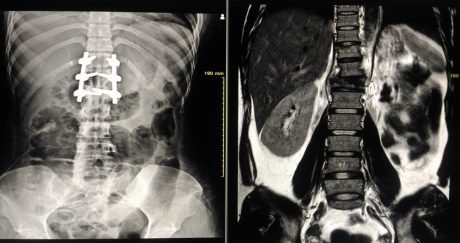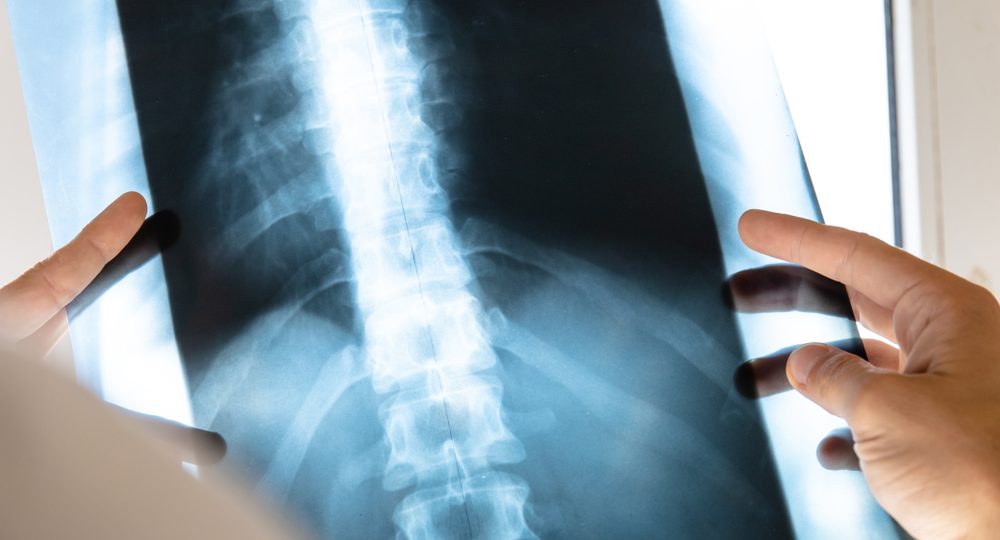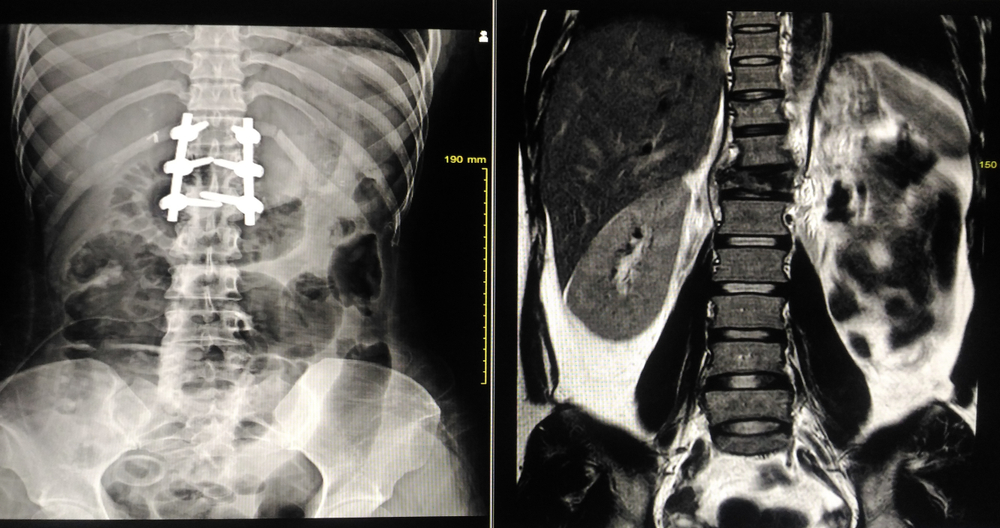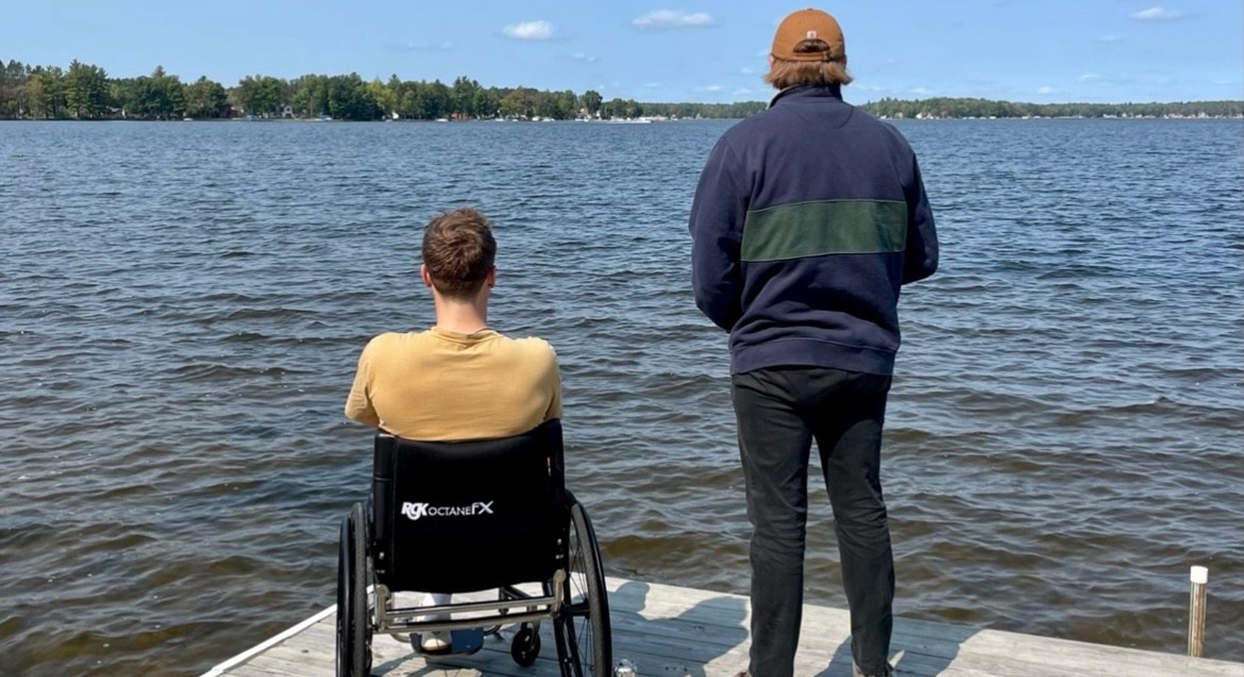Stewarts client RG brought a claim against two GPs and his local hospital trust for failing to diagnose and treat a spinal infection, resulting in him now living with incomplete tetraparesis and neurological deficit. The claim was pursued vigorously for more than six years before settling earlier this year. Senior associate Esther Gaudoin and paralegal Cara Smythe review RG’s case.
After retiring and before his spinal cord injury, RG worked part-time at a physically demanding job, which he loved. He was independent, and his job required him to be physically fit. He also enjoyed spending time with his family, participating in a local aviation group, going out with friends and regularly attending music concerts and the theatre.
RG seeks medical treatment
At the end of 2017, RG developed a persistent searing pain at the base of his neck. He sought medical assistance repeatedly through 111. He was seen by paramedics and had three consultations with an advanced nurse practitioner before being seen by a GP. He also attended A&E at his local hospital.
Despite this, the underlying cause remained undiagnosed and three weeks later, he collapsed at home. On emergency scanning at hospital, he was found to have a cervical spinal abscess. He underwent emergency cervical spinal surgery, including the insertion of metalwork. RG remained in hospital for seven months, and on discharge, he was noted to have a T3 ASIA C paraplegia with minimal improvement in hand grip.
RG’s claim
It was alleged that the first GP defendant had failed to suspect spinal infection and refer to the orthopaedic team or the emergency department at his local hospital. It was alleged against the third defendant that, among other failures, they failed to admit RG for further investigations, wrongly interpreted radiology as showing no obvious abnormalities, failed to seek, obtain or record any appropriate senior/specialist views and failed to determine and/or record any diagnosis.
Had any or all of the alleged breaches of duty not occurred, it was alleged that the spinal infection RG sustained would have been treated much earlier. The onset of neurological deficit would have been avoided through antibiotics.
RG fought his claim strenuously for almost six years. Initially, this included two GPs and a local city hospital NHS trust. Unfortunately, one of the GPs disappeared and moved abroad, which complicated the early parts of the claim as locating the GP and effecting service of legal proceedings overseas was attempted. Regrettably, despite avoiding the claim against this GP after considerable costs had been incurred, the NHS trust for the urgent care centre where the GP was based agreed responsibility for this GP’s care five years into the claim.
Liability accepted and settlement agreed
The GPs and hospital trust contested liability for several years. Liability was denied in pre-action correspondence but finally conceded in the summer of 2023. After exchange of all expert reports relating to the valuation of the claim, RG’s claim settled in January 2024 for the sum of £2.6m.
RG’s future care
The settlement ensures RG will obtain the proper future care, accommodation and aids and equipment necessary to maintain his independence. He has also been able to complete initial inpatient spinal rehabilitation at a private specialist centre and has recently purchased suitable accommodation with adaptations underway.
Testimonial
RG said Stewarts had “given him his future back” and added:
“After a seven-month hospital stay, I was discharged home in a wheelchair with no sensation or movement from the chest down and with an uncertain future ahead. My daughter was angry at the handling of my treatment, and her research for a suitable solicitor to act on my behalf in a negligence claim led her to Stewarts.
“As litigation specialists she felt they would provide the best chance of achieving a successful outcome, and they agreed to act on my behalf. Stewarts progressed my case in a logical order. Expert witnesses prepared detailed reports in support of my case, and I was kept informed at each stage of the process.
“So compelling was the case presented to the solicitors acting for the NHS that liability was admitted. The final stage was to agree on the amount of compensation due to me. With no agreement, this would have progressed to court. A hearing had already been set for a few months ahead, but at a final negotiation, I was offered a satisfactory settlement.
“Whilst my life will never be as it was before my injury, thanks to Stewarts and the amount I received, it will enable me to get a large part of my life back.”
You can find further information regarding our expertise, experience and team on our Clinical Negligence page.
If you require assistance from our team, please contact us.
Subscribe – In order to receive our news straight to your inbox, subscribe here. Our newsletters are sent no more than once a month.





